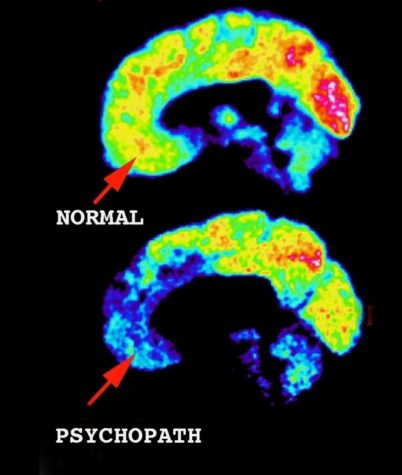The Reality of Psychopathy Vs. Sociopathy

We have seen depictions of psychopaths and sociopaths in plenty of movies and TV shows. With characters such as Patrick Bateman from American Psycho who was a psychopath, and Dr. Hannibal Lecter from Silence of the Lambs who was a sociopath. By no means are either of them intentionally being malcontent or malicious, but they have been depicted in such, which is false. Both of them suffered from mental illnesses that people have trouble differentiating. To understand the distinction between psychopathy and sociopathy, let’s take on the similarities and differences between them.
In diagnostic means, the cause of psychopathy differs from that of sociopathy. It’s a result of genetics, being related to psychological defects creating an under development in parts of the brain that control emotions and empathy. Psychopathy is essentially an inherited trait instead of an acquired trait.
People who suffer from psychopathy tend to be much more methodical and organized than people who suffer from sociopathy. They also can be master manipulators that learn to mimic actions and emotions in order to hide their true identity. For example, if it is socially just to be angry or sad in a moment, then they will act sad or mad. Many will hide their identities so that people will believe that they are perfectly normal, even going as far as to being in love with them or maintaining an emotional connection even if it’s one-sided. An example of this could be this: a woman and a man are together, and the man has psychopathic tendencies. The man will do everything to please his partner, mimicking positive feelings directed towards her, but in reality, he is using her for an ulterior motive. This motive could be anything from revenge to feeling loved when they don’t believe they can be.
However, when it comes to sociopathy, this illness can cause people to be less emotionally stable and highly impulsive, creating a much more erratic type of behavior compared to psychopaths. Since sociopathy is acquired instead of inherited, people who are affected are still able to feel emotions, so they are not able to manipulate them as well. They may be able to feel empathy in certain circumstances, but not enough that they cannot get caught. Unlike psychopaths, sociopaths do have a sense of maintaining a conscience, except they don’t allow their conscience to dictate their behavior. Instead, they may consciously ignore what their conscience thinks is right and wrong and continue to complete their actions, especially if there is a benefit for them.
As stated before, psychopaths are naturally born due to deficiencies in the brain. Sociopaths are created through the result of a brain injury, mental or physical abuse, or trauma. Their behaviors are inherited to suppress what made them feel their worst, making others feel their pain in order to maintain themselves.
In reality, people with psychopathic or sociopathic tendencies share many characteristics. The main ones include a lack of remorse or empathy, a lack of guilt or any sort of ability to take responsibility for actions, a disregard for laws, and increased violence to cope. They also both use emotional manipulation in order to achieve a desire. An example of the use of emotional manipulation while showing no remorse is taking on a role as a caregiver. They make the people around them feel as if they are normal when in retrospect, it is just a facade.
According to the fifth edition of the Diagnostic and Statistical Manual of Mental Disorders (DSM-5), released by the APA in 2013, both sociopathy and psychopathy are listed under the heading of Antisocial Personality Disorders. This adds on as proof of their antisocial methods and their lack of remorse or empathy. Another thing to consider is that both of them are infrequently diagnosed with only 1-4% of the nation being diagnosed for ages 18 and above according to the National Library of Medicine.
Overall, while sociopaths and psychopaths happen to many similar characteristics, they also are quite distinguishable in regards to their mental upbringing and the way they execute everyday actions. Psychopaths are naturally born with inheritable traits and are much more methodical. Sociopaths have acquired traits and use impulsivity to control their actions.
Your donation will support the student journalists of Parkland High School. Your contribution will allow us to purchase equipment and cover our annual website hosting and printing costs.

Gianna is a senior in her second year in the Trumpet Newspaper. She likes to write different pieces about anything ranging from fashion to politics....










